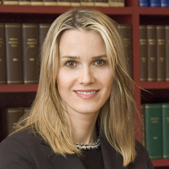 Networking works best if it is done with “marketing aforethought.” Here’s your game plan for an effective networking event.
Networking works best if it is done with “marketing aforethought.” Here’s your game plan for an effective networking event.
Where to Go
The best meetings for networking are the ones your clients and referral sources go to. Every person in business belongs to a trade association. Simply ask your clients what meetings they go to and suggest you join them. At the meeting, have your client introduce you to others (who are prospective clients). If anyone asks what you’re doing there, tell them you want to learn the industry better, to meet people and to ask questions.
Bar association meetings can be a great source for referrals – if you’re a litigator and you attend bar meetings to meet transactional lawyers, or you can meet out-of-state lawyers who may call you when they have a matter in your city.
Making a Plan of Action
Most lawyers erroneously think networking is shaking as many hands as possible and spreading out as many business cards as possible at an event. This is incorrect. You should go to an event with the aim of having one or two meaningful conversations – that’s it.
A premeditated networker going to an event checks the membership or attendee list ahead of time, and highlights 3-5 people to meet. That way he’s not walking into a huge room full of people he doesn’t know. At the event, the networker asks the president to introduce him to a few of these targets.
Additional tips:
- Come early to meetings and stand by the table where name tags are handed out. Let everyone at the meeting see you are there. Say hello to everyone you know.
- Have the staff working the desk identify the people you are looking for.
- Pick out whom you’re going to sit with and put your purse/jacket across the chairs at the table.
- Introduce yourself to the speakers and get their business cards; briefly chat them up about the topic they’re speaking on. Do this at the front of the room so everybody can see you attended the meeting.
- If possible, bring a second person from your law firm to the meeting and have them do the same thing; be certain that you split up from the second person and sit at separate tables and talk to different people.
Starting a Conversation
...please click "Continue Reading" in the link below.
Starting a Conversation
People believe it’s hard to start a conversation with a stranger so they decide not to network. However, it’s easy to start a conversation if you premeditatedly pick out the people you want to talk to and prepare five good questions in advance. For example:
1. What has changed since the last time we met?
2. How has that affected you?
3. How are you dealing with the XXXX issue in your industry?
4. How do you think that will affect you in the future?
5. What are the 2-3 things that absolutely MUST go right for you to have a good year?
If you’ve prepared in advance for specific target contacts, you can develop other intelligent questions, with the aim of inquiring into the target’s business “pain” and plans.
So don’t talk about the weather or the movies; explore what’s important to the other person. Talk about their favorite topic: themselves. The idea is to get the person talking through good questions; if he’s talking, the networker is selling. If the contact has unmet needs, this creates an opportunity to meet again later.
Ordinarily, you shouldn’t ask a prospective client to handle their legal work on the very first meeting. There is a courtship process and both parties need to get to know each other. To use a dating analogy, a guy doesn’t ask a girl to marry him on the first date.
Follow-up
Get the business card of everyone you met and immediately write three things on the back:
1. The date
2. The place
3. What you talked about.
As you leave the meeting, send a text message to the people you met, saying how nice it was to see them. If you write a blog, write a post about the meeting you went to. If you have a Twitter account, tweet about the best thing you got from the meeting. Use your PDA or smartphone to find a link to what you had a conversation about, email the link to the person you just met using your PDA. All this can be done within the first hour after you met the person.
When you return to your office, immediately input this information into your Outlook Contacts – especially the “notes” box. This is essential. You can search Outlook, but you can’t search a wad of business cards with a rubber band around it in your desk drawer.
Follow-up with a “glad to meet you” email, and point them to a link of useful information. Then add them to your mailing lists and make sure you send them a relevant newsletter, e-alert or research findings on a regular basis. Make it worthwhile for the other person to stay in touch with you. If you’ve met someone who has described an unmet need, you should set up a face-to-face meeting or conference call with your contact, have them invite the decision-maker to join you, and focus on their “pain” and how you can solve it.
Use the power of online social networks as you proceed. For professionals, only one network is really worthy: LinkedIn. You can safely ignore invitations from people on other networks. Approximately 78% of lawyers have a LinkedIn profile, but don’t do anything with it. Invite the event speaker and the people you met to connect with you. Every time you talk to a reporter, invite them into your network. Every now and then, send a “question” to all your contacts – asking about new research you found, or the organization where you met, or points raised by the speaker.
By planning ahead and picking the people you want to meet in advance, you can develop new, and deepen existing, relationships – which are ultimately the best source of new business.
 Networking works best if it is done with “marketing aforethought.” Here’s your game plan for an effective networking event.
Networking works best if it is done with “marketing aforethought.” Here’s your game plan for an effective networking event. "We are painfully familiar with client complaints that large law firms charge too much for new associates who know too little about the practice of law to be worth it," said
"We are painfully familiar with client complaints that large law firms charge too much for new associates who know too little about the practice of law to be worth it," said 
 Article from:
Article from:  "This sensitized the partners to some of the critical business issues going forward, such as mergers, bringing on laterals [lawyers from other firms] and opening new offices," said Michael Levinson, a trial lawyer and partner at Seyfarth Shaw.
"This sensitized the partners to some of the critical business issues going forward, such as mergers, bringing on laterals [lawyers from other firms] and opening new offices," said Michael Levinson, a trial lawyer and partner at Seyfarth Shaw. Want to find out the most efficient hunting organization in the world? Or how to find a counterpart to go to market with? Check out
Want to find out the most efficient hunting organization in the world? Or how to find a counterpart to go to market with? Check out  According to
According to  Attorney Nicholas Weston knew he had to do something different at his boutique IP firm. If he wanted to improve the kinds of work he was doing plus stop wasting time and money, he had to overhaul his approach to business development. Here he shares eight marketing errors he used to make and how, mainly by trial and error, he changed his ways. By his good example, you might avoid these errors yourself.
Attorney Nicholas Weston knew he had to do something different at his boutique IP firm. If he wanted to improve the kinds of work he was doing plus stop wasting time and money, he had to overhaul his approach to business development. Here he shares eight marketing errors he used to make and how, mainly by trial and error, he changed his ways. By his good example, you might avoid these errors yourself.


